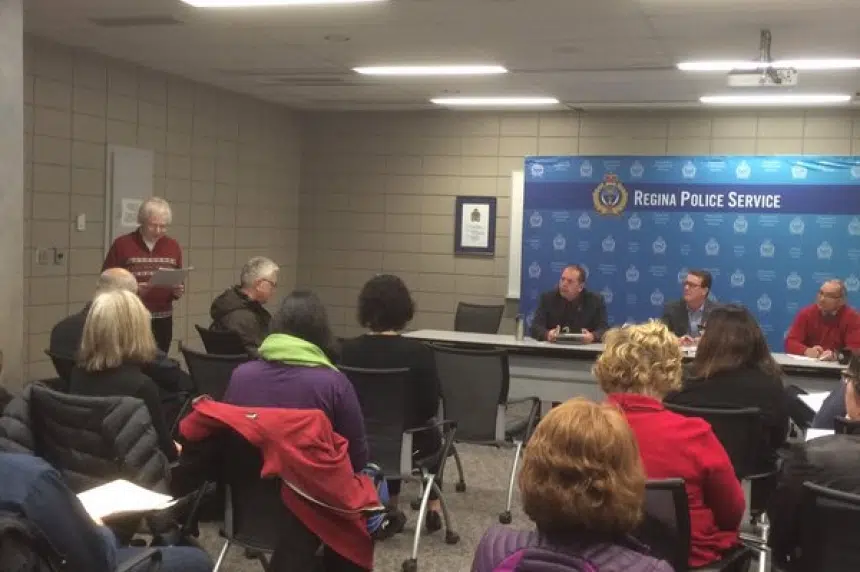A new initiative that helps businesses deal with unwanted guests seems to be working, but not without some questioning if it’s unfairly targeting the people who need the most help.
Regina’s Board of Police Commissioners was given an update on the Trespass to Property Initiative, which has been in place for the last six months. The initiative allows business owners, especially in the downtown, to ban patrons or individuals who are repeatedly disruptive, drunk or unruly.
If the ban is ignored and individuals return, police have the option of ticketing them.
“It further victimizes the most-vulnerable people in our city,” said Robyn Pitawanakwat, who runs a daycare downtown. “I think that people are more important than businesses.”
Pitawanakwat was one of four delegations who spoke against the initiative Wednesday. They called it offensive. Their voice of opposition also raised questions about credibility within the police service, believing that some officers may be racially motivated.
Police Chief Troy Hagen disputes that, and insisted there is no racial profiling going on when dealing with calls regarding these matters. He said officers are responding to calls for service, not generating the calls themselves. Hagen explained all demographics across the city have mental health issues and alcohol and drug addictions.
“We are not insensitive to the very complex needs of some of the individuals that we’re interacting with. We’re not insensitive to poverty. We’re not insensitive to addiction issues, mental health issues, homelessness. As a matter of fact as a police service we have a great deal of empathy for people that are experiencing those troubles in their lives,” said the chief.
Hagen points to statistics that indicate the program is working. Disruptions are down 18 per cent from the same six month period from last year. Police have received 136 ban forms since the changes were made and written 38 tickets. For those who persist despite being ticketed, police also have the option of laying a mischief charge. Only one of those has been laid thus far.
Both the chief and Mayor Michael Fougere believe the point of the initiative is not to throw offenders in jail. Instead, they think it decriminalizes the issue.
“It’s not to put them behind bars. It’s actually to help them, not make them a criminal,” said Fougere.
“When you get a ticket and you can’t pay it, that leads you into a big problem with the police,” Pitawanakwat countered.
She said if you don’t have enough money to pay up, eventually it’ll end up in court and a warrant may be issued. The business owner hopes police can simply make more of an effort to speak with individuals to find out what kinds of problems they’re facing instead of dinging them with a fine. She believes in public awareness over tickets.
When it comes to the worst offenders – those who are violent, potentially dangerous and refuse to co-operate – Pitawanakwat conceded that police should be called if business owners and customers are in fear of being assaulted.
The board appears confident this initiative is so far proving to be effective in dealing with those types of scenarios.











